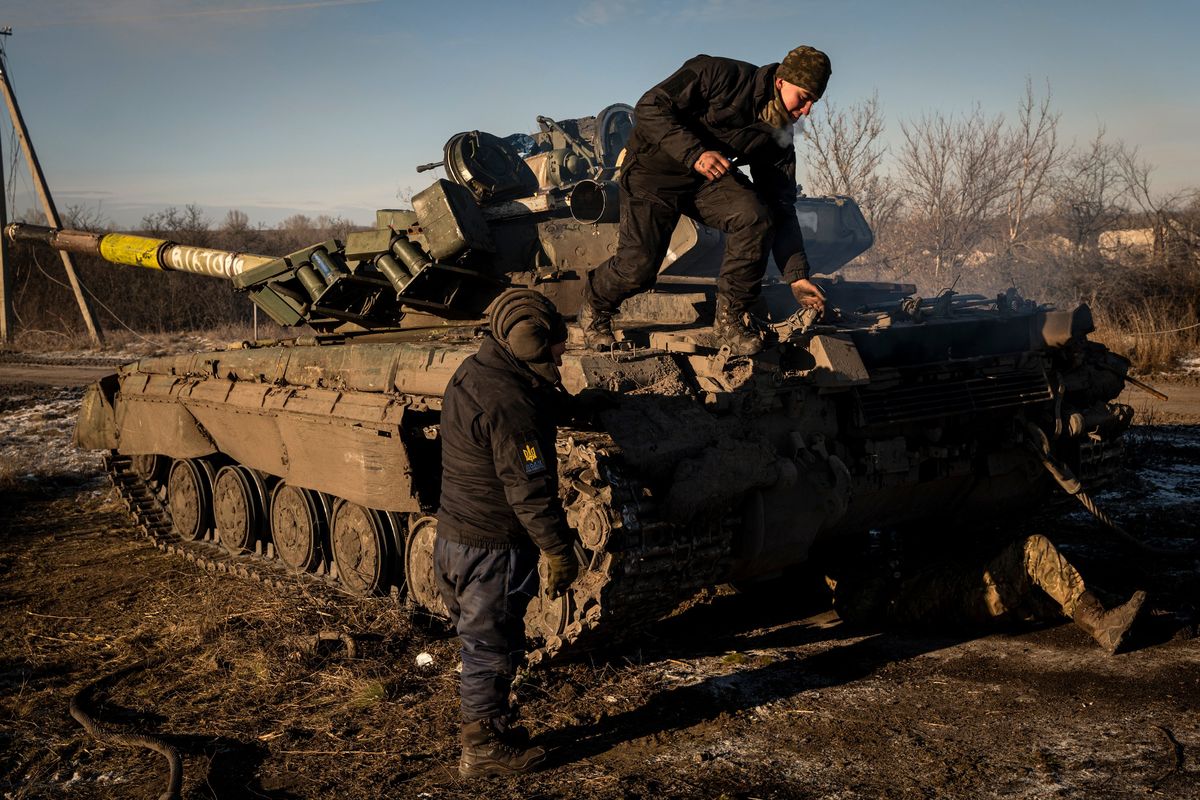Ukraine battles for eastern town as Russia advances

KYIV, Ukraine – Intense fighting continued in the eastern Ukrainian town of Soledar on Wednesday, despite a claim by the founder of a mercenary force leading Russia’s offensive there that his troops had seized control of the town.
A Wednesday morning update from Ukraine’s General Staff of the Armed Forces gave no indication that the battle for the salt-mining town of Soledar had ended. And Russia’s Defense Ministry and the Kremlin did not confirm the claim by the mercenaries, the Wagner Group, that Soledar had fallen, saying that the town was only blocked for now.
In the ministry’s daily briefing Wednesday, it said that its paratroopers “had blocked Soledar from the north and south” and that its assault units were “fighting in the city.” Dmitry Peskov, the Kremlin’s spokesperson, urged reporters to wait for official announcements about whether the city had been captured, adding that “tactical successes are certainly very important as they come at a rather expensive price.”
The assault is part of Russia’s broader push in the area around the city of Bakhmut that Moscow sees as important to achieving its goal of occupying all of Ukraine’s eastern Donbas region. In and around Bakhmut, the Wagner Group, which has recruited prisoners into its ranks, has become the main force there, and the fighting has been brutal.
The entrepreneur who started the Wagner Group, Yevgeny V. Prigozhin, is a longtime ally of President Vladimir Putin of Russia but has also been publicly critical of Russia’s Defense Ministry and increasingly outspoken after acknowledging in September that he was the founder of the shadowy organization. The group’s fighters have also been deployed in support of the Kremlin’s military campaigns in Africa and the Middle East.
Even as the Kremlin expressed caution, Russia’s Channel One – one of the two main state-run television networks – trumpeted in its news report Wednesday that Russian forces had achieved “a strategically important victory in the Donbas,” saying that “Soledar is under control.”
The report, which did not mention the Wagner Group, said that Russian forces had pushed through a “labyrinth of underground strongholds” to capture Soledar. “The road is now open to other important towns,” the anchor said.
At close to 1 a.m. Wednesday, Robert Magyar, a commander of a Ukrainian air reconnaissance group, had said in a statement on the Telegram messaging app that Ukrainian forces were still holding the town, though he acknowledged that the battle was brutal. “True – it’s hell,” he wrote, adding that the claims that Russia had taken Soledar were “psychological pressure and propaganda.”
If Soledar did fall, the seizure of the relatively small municipality would be Russia’s first notable victory in months, after a string of humiliating losses. Ukraine changed the course of the war with its capture of the Kharkiv region in September and then the city of Kherson in November, successes of far greater magnitude.
Military experts say that although taking Soledar would be significant, it would not signal that the city of Bakhmut is about to fall into Russian hands. Ukraine has strongly reinforced its positions in and around Bakhmut, about 10 miles away, presenting a formidable obstacle to further progress by Moscow.
The Institute for the Study of War, a Washington-based research group, concluded in a Tuesday analysis that even if Russia captured Soledar, Ukraine could defend and resupply soldiers in Bakhmut.
“The reality of block-by-block control of terrain in Soledar is obfuscated by the dynamic nature of urban combat,” the analysis said, though it noted that “Russian forces have largely struggled to make significant tactical gains in the Soledar area for months.”
Prigozhin maintained in a post on Telegram that his troops had control of all of Soledar, though he added that fighting was continuing. “A cauldron has been formed in the center of the city, in which urban battles are being fought,” he said.
How a small salt-mining town with a prewar population of 10,000 became a focus of such a sustained assault by Wagner’s forces has been an open question. The most critical factor is perhaps what Prigozhin and his mercenaries fighting there have to gain in terms of reputation.
This article originally appeared in The New York Times.